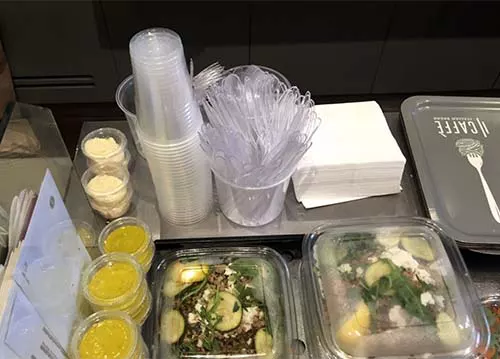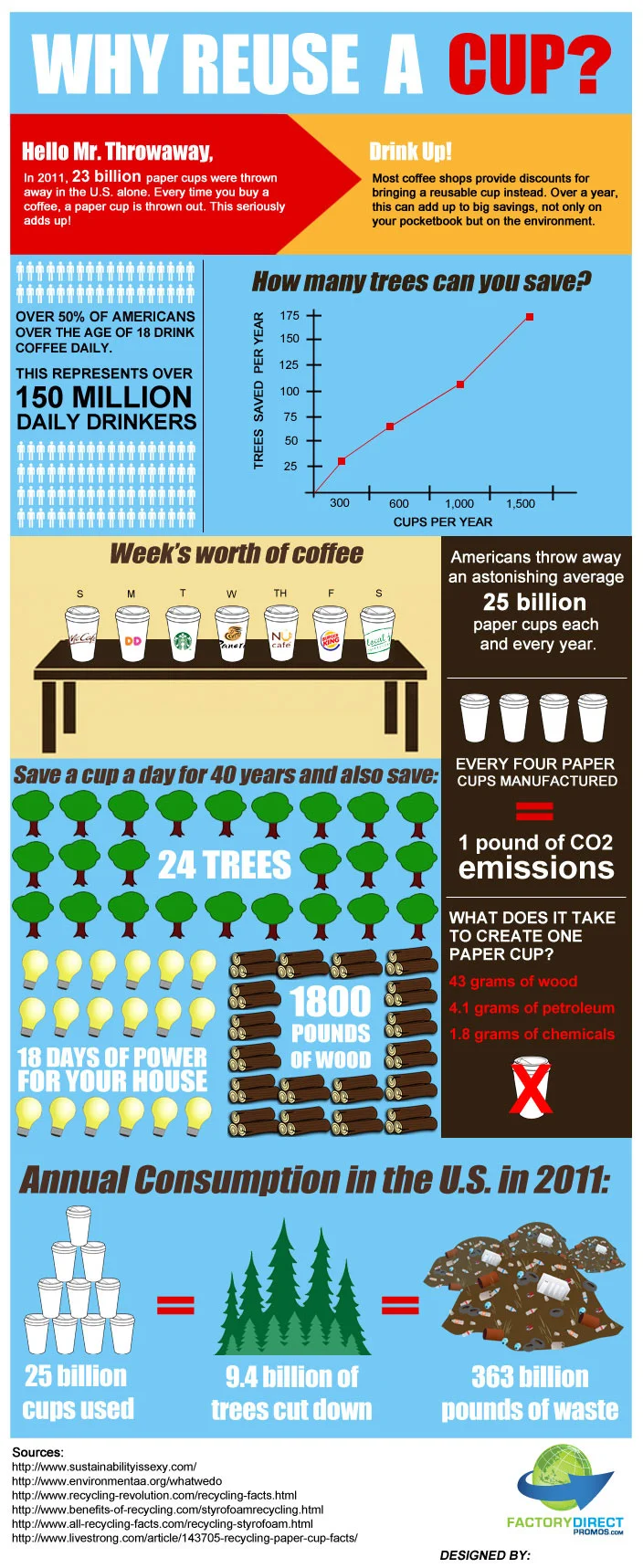The Two Sides of France Ban on Plastic Bags, Plates, Cutlery and Cups

The Two Sides of France Ban on Plastic Bags, Plates, Cutlery and Cups!
Starting in 2020 it will be mandatory in France that disposable plastic plates, cups and cutlery be made from 50 percent biologically-sourced compostable materials. The percentage will increase to 60 percent by 2025. This measure will join France’s single-use plastic bag ban already in place that began on July 1, 2016.
This latest measure makes France the first country to implement such a far reaching ban on plastic items. As is to be expected, there are people for and against the France plastic bag ban and other plastic bans. To help understand these plastic bans, we decided to take a look at both sides of the argument.
Irresponsible Use of Nonrenewable Resources
The problems with plastic bags and other plastic items are well documented, our infographic that covers the life cycle of a plastic bag dives into the details. Plastics are made using nonrenewable resources, such as oil and natural gas. It is a waste to use nonrenewable resources for disposable items, because we are not maximizing the usefulness of these resources.
There are limited amounts of nonrenewable resources, and while we do not know just how long these resources will last (some estimates put it as low several decades and other estimates indicate hundreds of years), it is important that we do not become dependent on these resources.
We must find suitable alternatives. Banning the use of plastic items made from nonrenewable resources, prioritizes how resources are used and ensures more durable, reusable items are used in place of disposable products.
Environmental Impact of Disposable Plastic Items
Once single-use plastic items have fulfilled their usefulness, there are a couple of possible outcomes for them, but the outcome all depends on the consumer who disposes of the items. To learn more check out our WHY REUSE A CUP INFOGRAPHIC.
Feel Free to Share Our Infographic on Your Site Using The Following Code:
<a href="https://www.factorydirectpromos.com/why-reuse-a-cup" ><img src="http://static.factorydirectpromos.com/media/wysiwyg/Infographics/info.jpg" alt="Why Reuse a Cup?" title="Why Reuse a Cup?" /></a>Recycling is always an option. The advantage of recycling is that the discarded plastic product is re-manufactured into another plastic item which can be used again. Most types of plastic can be recycled an unlimited number of times. The problem with recycling is that not all plastics can simply be tossed into a recycling bin and not all recycling facilities accept all types of plastics. This problem must have been a deciding factor in the France plastic bag ban as single-use plastic bags are some of the hardest plastic to recycle.
It also falls to the consumer to sort their recyclables from items that are not recyclable. Outreach and education are helpful in this area and while some municipalities are made progress in informing residents on how to sort trash, the reality is most recyclable materials are not recycled.
Most recyclable materials end up in the trash or as litter. Plastic is not biodegradable, which means plastic does not safely break down. Over time when exposed to the elements plastic will break apart into smaller and even smaller pieces of plastic. These tiny pieces leach into soil. It is very easy, and unfortunately all too common for animals to become stuck and tangled in or to eat discarded plastic. In many instances this is fatal, so plastic pollution can impact animals and their ecosystems.
The Case Against the Ban
Still, there are a lot of advantages to using plastic. Plastic is easy to clean, and since it is intended to be used once, so as long as that is the case there are no issues with cross contamination.
Add to the advantages of using plastic, the fact that many of the plastic substitutes do not have everything plastic has to offer. As Eamonn Bates, secretary general of Pack2Go Europe, a Brussels-based association that represents packaging manufacturers on the continent explained, “Finding a package that meets the really critical food hygiene requirements that consumers want, that can also be composted in a domestic composter…right now they don’t exist.”
Cleanliness and convenience are major concerns, and plastic definitely is the better choice when judged on these criteria. “My members are not against bio plastics or new products. But the industry does oppose them being imposed for certain applications especially when the life-cycle analysis shows that there is no environmental basis for doing so,” Bates said.
Determining the Best Solution to a Complicated Problem
Disposable plastic items are a waste of nonrenewable resources, and due to irresponsible disposal methods the environmental impact is compounded. The France ban on plastic bags and plastic tableware, may seem drastic, but single-use plastic bag bans are proven effective, and there is no reason to doubt bans on plastic plates, cutlery and cups will not be equally effective.
Adjusting to a plastic ban requires a change in habits, but there are a lot of reusable options available. Is there a bag ban in your hometown? How does this impact your business? How would a ban on plastic plates, cutlery, and cups impact your business?

